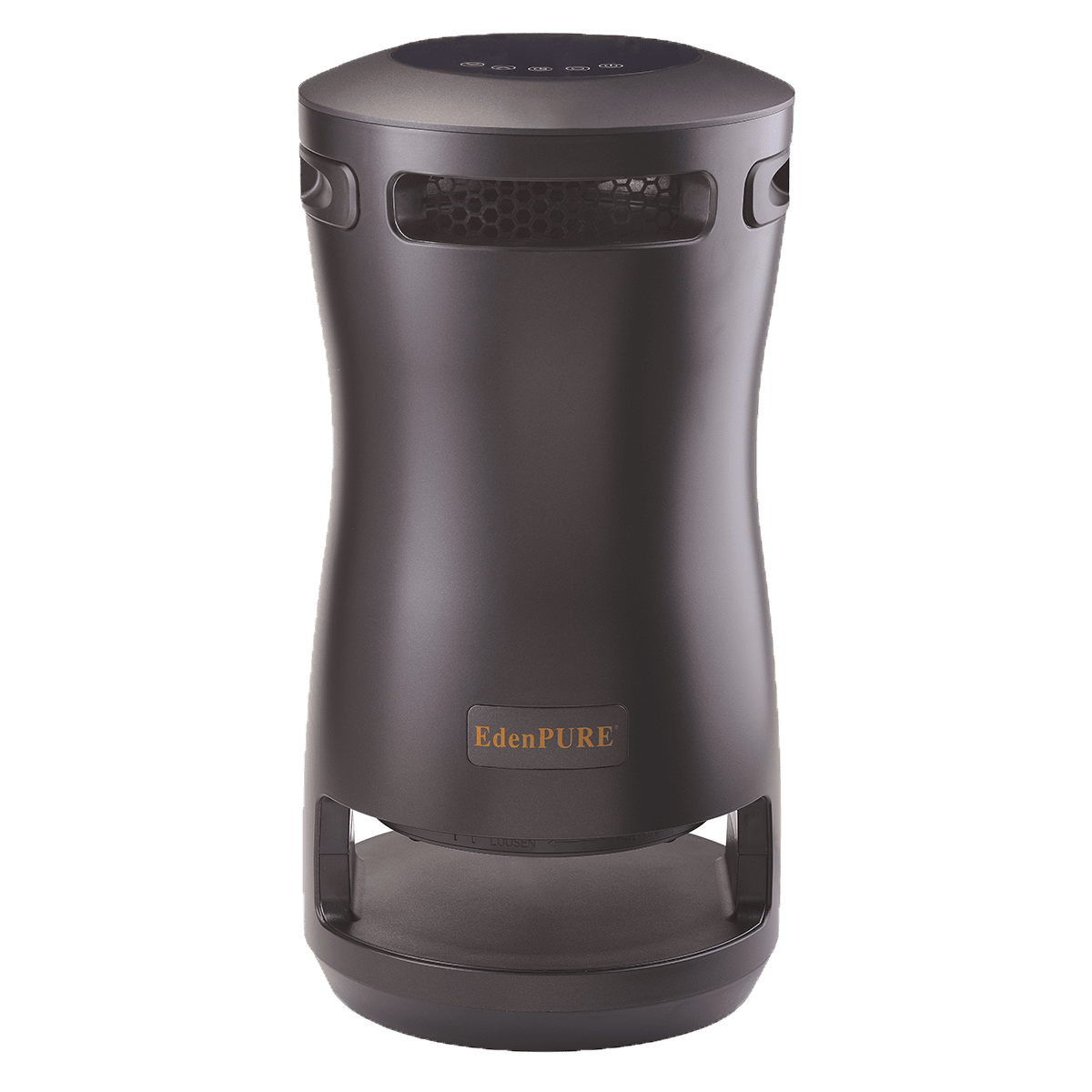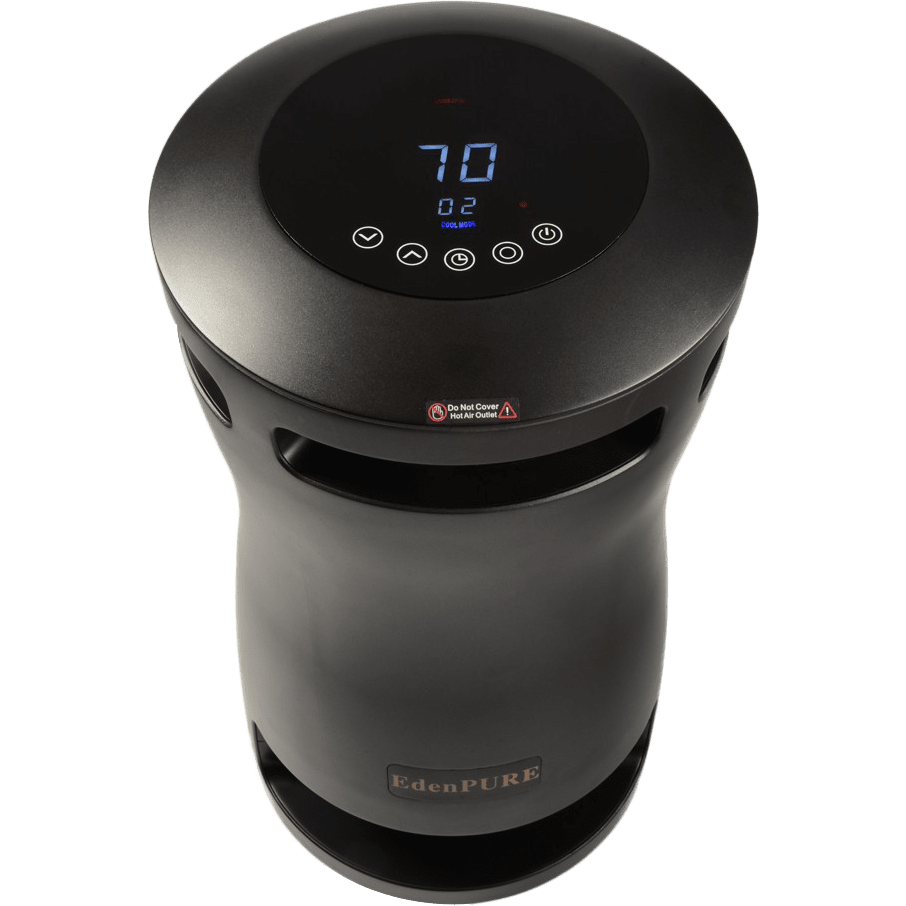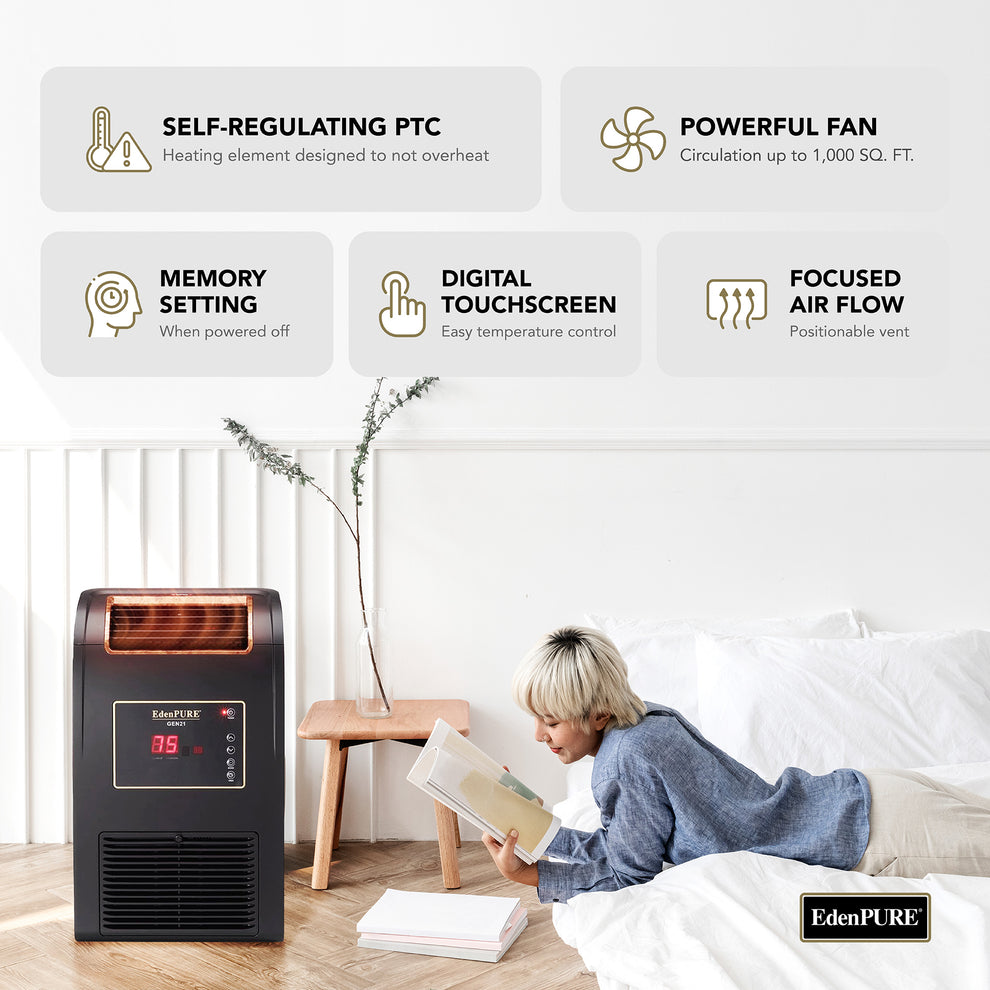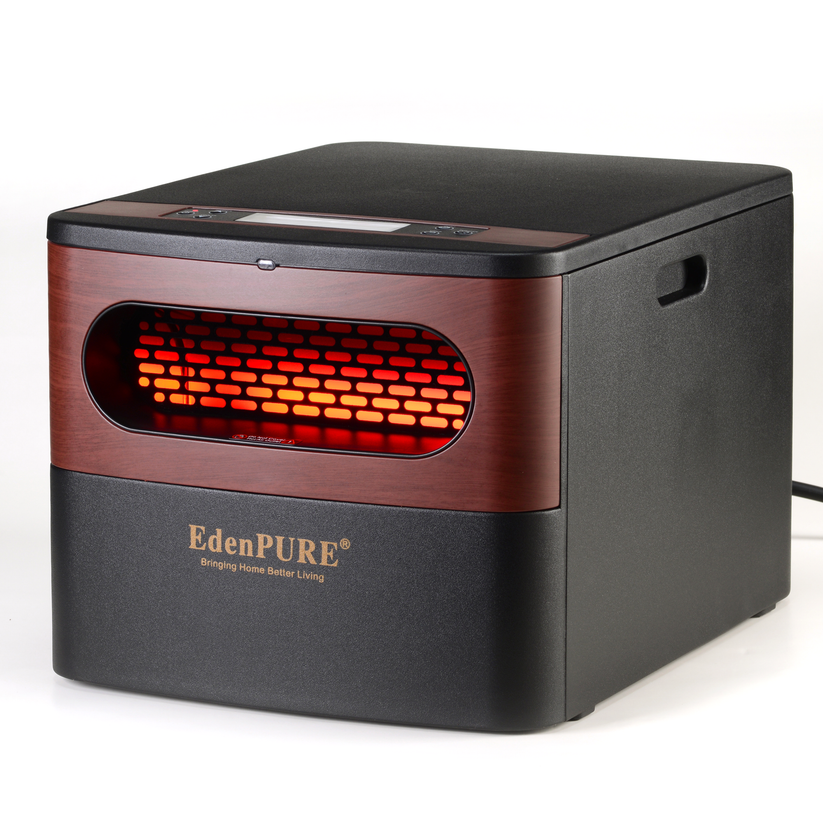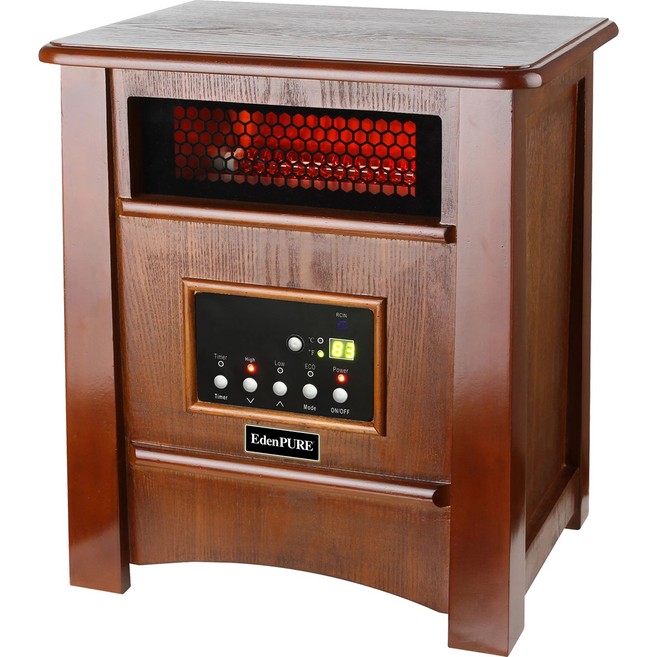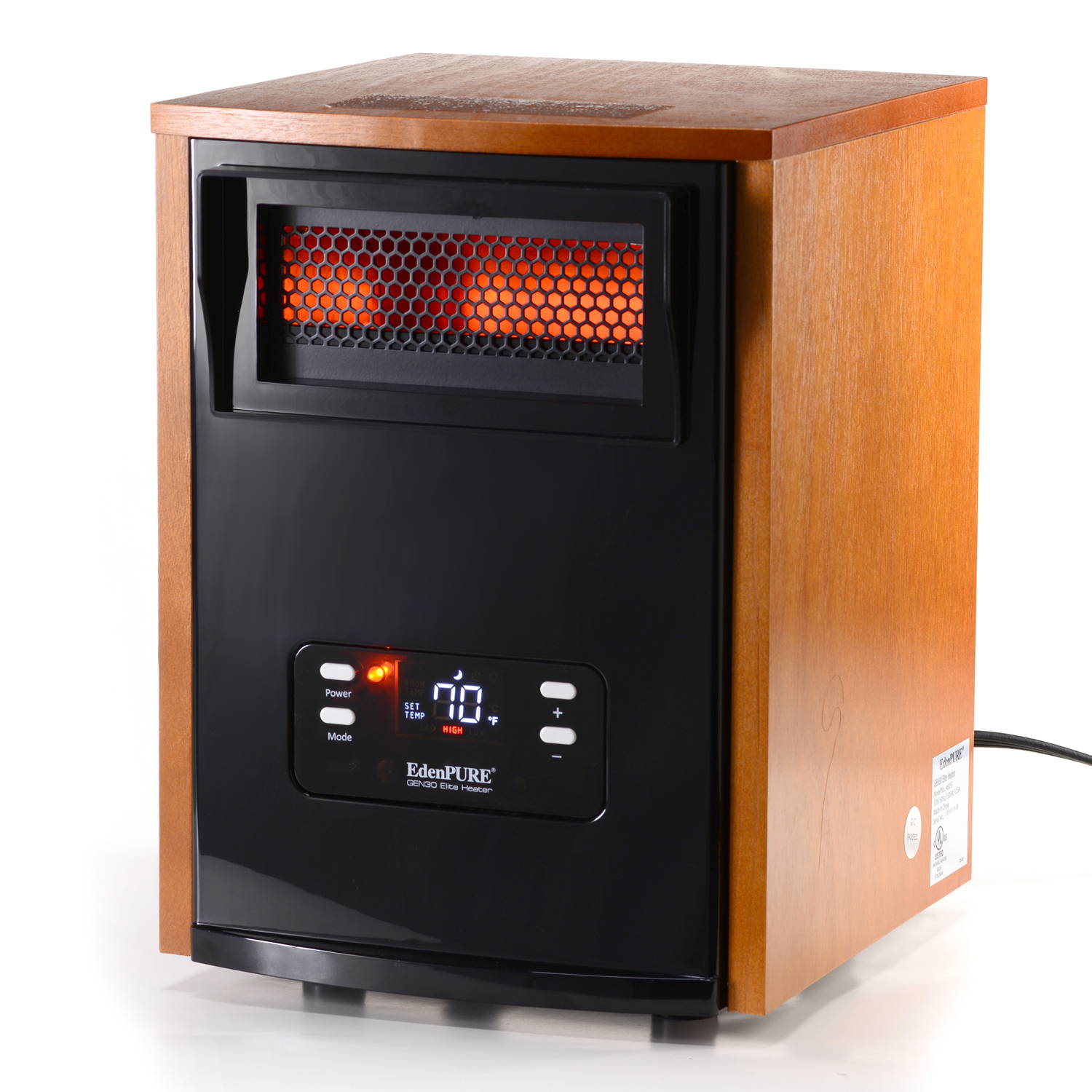Are Edenpure Heaters Energy Efficient
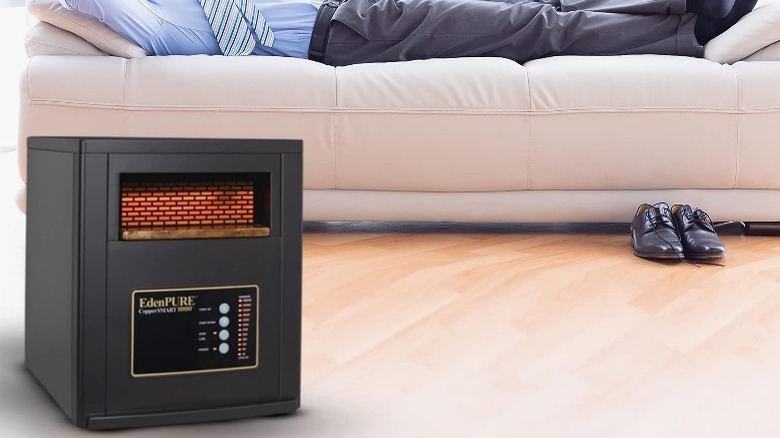
As winter's chill deepens, many homeowners seek ways to cut heating costs. Among the myriad of options, Edenpure heaters have gained significant attention. However, are these popular devices truly as energy-efficient as advertised, or are consumers being misled by clever marketing?
The question of Edenpure heater efficiency is complex, demanding a thorough examination beyond advertised claims. This article delves into the operational principles, energy consumption, and real-world performance of Edenpure heaters. We will explore expert opinions, independent testing data, and customer experiences to provide a balanced assessment of their energy efficiency relative to other heating solutions.
How Edenpure Heaters Work
Edenpure heaters are typically infrared or quartz radiant heaters. They work by directly heating objects and people in a room, rather than heating the air itself. This localized heating is often touted as a key advantage in terms of energy savings.
Proponents argue that by warming only the occupied areas, less energy is wasted heating empty spaces. However, the effectiveness of this approach depends greatly on room size, insulation, and usage patterns.
Energy Consumption and Cost Analysis
Edenpure heaters typically consume around 1500 watts, which is the maximum wattage for a standard 120V household circuit. This translates to approximately 1.5 kilowatt-hours (kWh) of electricity per hour of operation. The actual cost of running an Edenpure heater hinges on your local electricity rate, which varies significantly across regions.
To assess energy efficiency, one must compare the heat output (measured in BTUs) relative to the electricity input. Independent tests are crucial here, as manufacturer claims can be biased.
Several studies have compared Edenpure heaters to other heating methods, such as central heating systems and space heaters. The results are often mixed, highlighting the importance of considering specific circumstances.
Expert Opinions and Testing Data
Consumer Reports, among other reputable testing organizations, has evaluated various space heaters, including radiant models. While specific Edenpure models may not always be individually tested, general findings about radiant heater efficiency are relevant.
Many experts emphasize that all electric resistance heaters, including Edenpure models, are essentially 100% efficient at converting electricity into heat. However, this doesn't necessarily translate to overall energy savings.
The key question is whether the localized heating they provide results in lower overall energy consumption compared to heating an entire house with a central system. The answer is highly dependent on individual heating needs and usage patterns.
User Experiences and Common Complaints
Online reviews and customer testimonials paint a varied picture. Some users praise Edenpure heaters for their ability to quickly and effectively warm specific areas, leading to noticeable savings on their heating bills.
Conversely, other users report disappointment, noting that the heaters consume a significant amount of electricity and don't provide sufficient heat for larger rooms. A common complaint revolves around the high initial cost of the heaters relative to their actual performance.
Concerns about misleading marketing tactics and exaggerated energy-saving claims are also frequently voiced. Consumers should carefully scrutinize advertising and compare specifications with independent test results.
The Importance of Proper Usage and Insulation
Regardless of the heater type, proper insulation is paramount for energy efficiency. A well-insulated home will retain heat more effectively, reducing the need for supplemental heating.
Using an Edenpure heater in a drafty, poorly insulated room will likely result in higher energy consumption and minimal savings. Similarly, using the heater to warm an entire house when only a small area needs heating is inefficient.
Smart thermostat settings, targeted heating, and proper insulation are crucial components of any effective energy-saving strategy.
Conclusion: A Conditional Recommendation
Edenpure heaters are not inherently more energy-efficient than other electric resistance heaters. Their potential for energy savings depends heavily on specific usage patterns, room size, insulation quality, and individual heating needs.
For those seeking to supplement their existing heating system and warm specific areas, an Edenpure heater may offer some benefits, provided it is used strategically and in conjunction with other energy-saving measures. However, consumers should be wary of exaggerated claims and carefully compare the cost and performance of Edenpure heaters with alternative heating solutions before making a purchase.
Looking ahead, further research and independent testing are needed to provide more definitive data on the long-term energy efficiency of Edenpure heaters in various real-world scenarios. Consumers should stay informed and make informed decisions based on their individual circumstances and needs.
